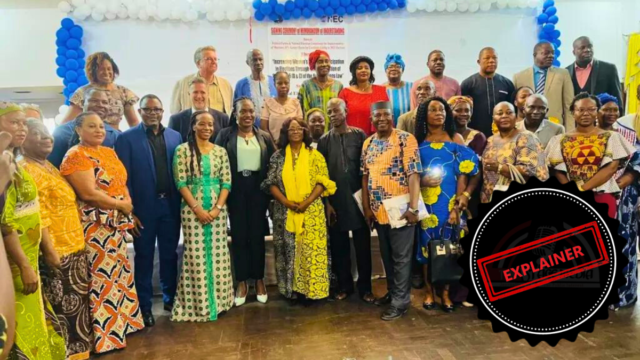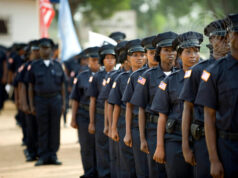
Liberia has over the years seen many calls coming from different national and international groupings for the equal participation of women in decision-making, especially in politics.
Despite signing many regional and international Protocols such as the ratification of the 1979 Convention on the Elimination of All Forms of Discrimination Against Women (CEDAW) and its Optional Protocol, the Adoption of the Beijing Declaration and Platform for Action; and the Ratification of the Protocol to the African Charter on Human and Peoples’ Rights on the Rights of Women in Africa, Liberian women are still lagging when it comes to politic.
Notwithstanding, the fact that Liberia was the first African country to elect a female president in 2006 and currently has a female Vice President, gender parity still seems to be a challenge.
A UNDP report of 2022 ranked Liberia as “156th of 162nd countries on the Gender Inequality Index, and 163 out of 185 countries on the list of women in parliaments”. The report further noted that Liberian women make up less than 11% of the 103 seats in the Legislature.
In February 2022, “An Act to Amend Certain Sections of the New Election Law (1986) As Amended Through 2014” was passed by the Legislature.
In March this year (2023), President George Weah vetoed several Sections of that Bill but approved amongst others, Section 4.5 b and c which state, “a political party, or coalition in its submission to the Commission, of its list of candidates for an election, should endeavour to ensure that the governing body and its list of candidates have no less than 30% of its members from each gender.”
“A list of candidates submitted to the Commission for an election should endeavour to have no less than 30% of the candidates on the list from each gender,” accordingly.
With the approval of this Section into law by the President of Liberia, the National Elections Commission (NEC) and twenty-five (25) registered political parties held a signing ceremony of a Memorandum of Understanding (MOU) between political parties and the NEC for the full implementation of a minimum 30% gender quota for candidates listings in the 2023 general elections.
When quizzed whether the Act approved by President Weah was not enough to achieve the 30% quota, the NEC Director of Communication Henry Flomo responded: “Well, if there was a law, there would not be a need to sign the MOU,” indicating uncertainty about the implementation of the Law.
But during the signing ceremony on May 11, 2023, foreign and regional partners, including Ireland, Sweden, UN Women, European Union, UNDP, and ECOWAS among others, lauded the political parties for the step taken to ensure that the 30% quota is put into effect, and called on all political parties to “turn the 30% quota MOU from paper into reality”.
At the ceremony, NEC Chairperson, Madam Davidetta Brown Lassanah indicated that the signing of the MOU was a holistic display of a firm commitment to the inclusion of women in the new political environment.
Madam Brown Lassanah pledged her institution’s commitment to the MOU saying, “Liberia is at a crossroads and by the signing of the MOU between political parties and the NEC, the NEC reaffirms its commitment to changing the current narrative of inequality in Liberia’s politics, to increasing the participation of women as candidates in the 2023 presidential and legislative elections”.
The Memorandum of Understanding (MOU) seeks, among other things, to create an enabling environment, and a safe space for female contestants, but most importantly, candidate listings submitted to the NEC should have a minimum of 30% of either gender for the 2023 general and presidential elections.
Speaking on behalf of the men from the various political parties at the signing ceremony, the Chairman of the Coalition for Democratic Change (CDC), Mulbah Morlu vowed to give the MoU their fullest support, stating, “We are taking a practical approach to the full implementation of Section 4.5 of the New Elections Law of Liberia; and we assure you of our commitments, which will be demonstrated at the national, electoral and the structural levels of our different political organizations.




